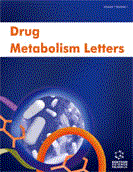Abstract
Background: Kidney disease associated with cancer and anti-cancer therapies has been increasingly recognized in the field of onco-nephrology. In particular, drug-induced nephrotoxicity has important implications since most chemotherapeutic agents have a nephrotoxic potential. Also, standard creatinine clearance methods used for the measurement of kidney function have been questioned in cancer patients due to factors like low muscle mass and poor nutritional status. Overestimations of the glomerular filtration rate, not only can increase the nephrotoxic potential of different agents, but also further limit the use of first-line therapies.
Objective: This review covers specifically the drug-induced thrombotic microangiopathy and its two pathophysiologic mechanisms which include immune or idiosyncratic reactions, and non-immune or dose-dependent ones.
Conclusion: As novel cancer therapies are developed, it is paramount to pursue a better understanding of conventional and novel chemotherapeutic agents and their role in kidney disease.
Keywords: Acute kidney injury, thrombotic microangiopathy, nephrotoxic, drug-induced, chemotherapy, immunotherapy.
Graphical Abstract
 22
22















